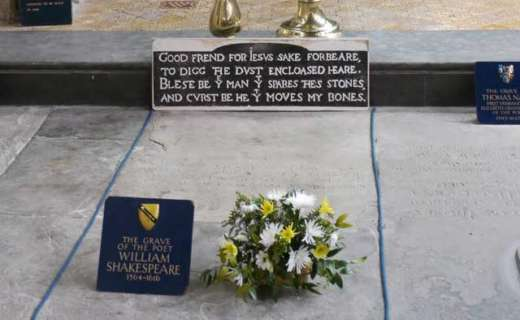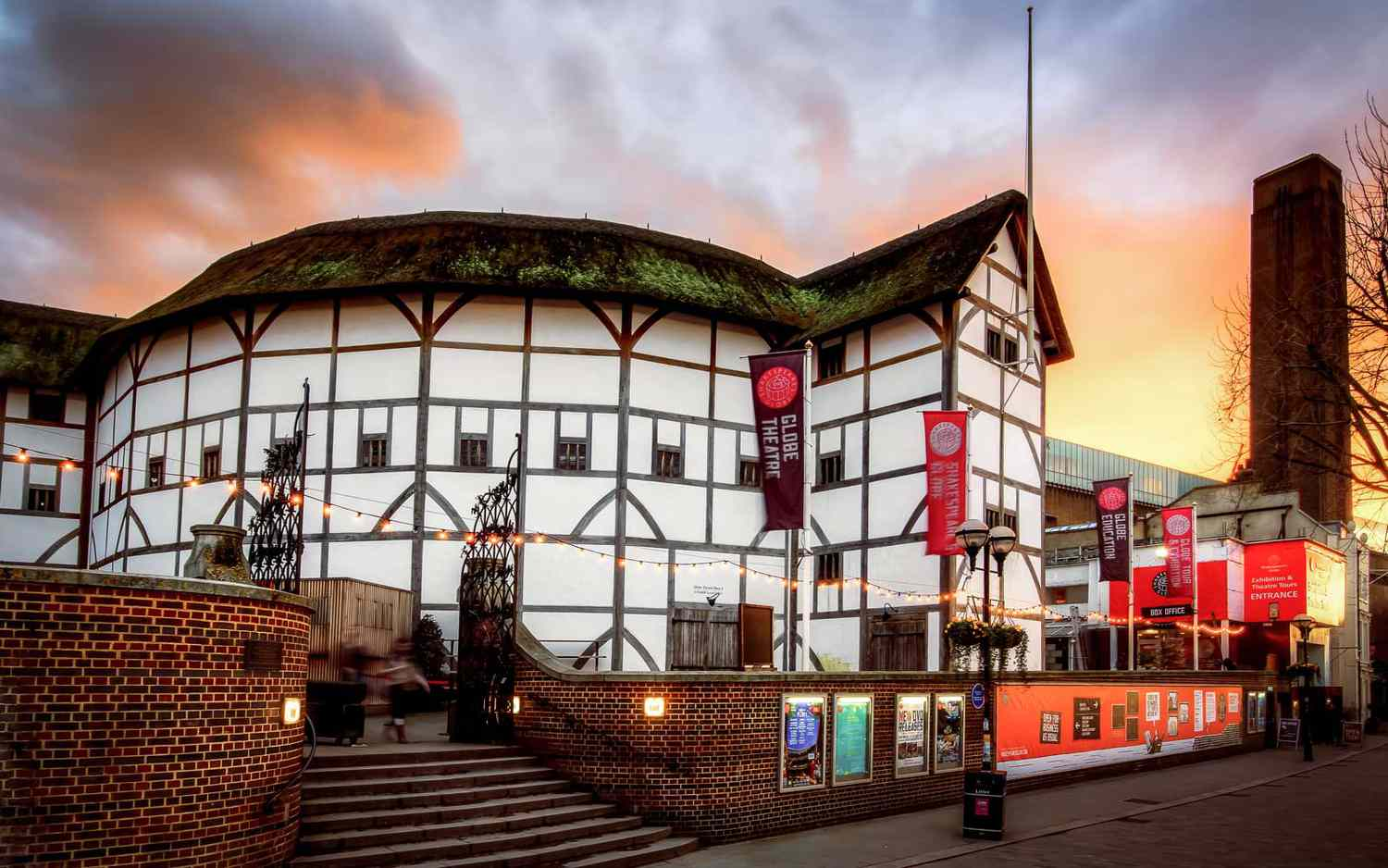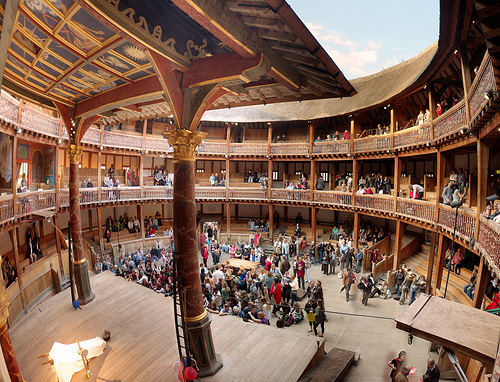Intro to Shakespeare Notes
English 1
Shakespeare Biography Information:
Shakespeare is relevant in modern times through allusion and emulation.
Shakespeare was born on April 23, 1564, in Stratford-Upon-Avon.
He died at age 52, estimated date April 23, 1616.
Included on Shakespeare’s grave is a curse against moving his bones.

Wife: Anne Hathaway
Children: Hamnet Shakespeare, Judith Shakespeare
Shakespeare wrote 37 plays, 154 sonnets, and many other poems.
Shakespeare writes in Early Modern English.
We believe he attended grammar school, because even though there are no records of his admittance, his father’s stature among their society would of allowed him a place. Shakespeare also has a uncommon knowledge (for the time) of Latin plays and there are scenes in his plays that refer to grammar school experiences.
Shakespeare was an actor, playwright, poet, voracious writer, and wealthy landowner.
Shakespeare lived during the Elizabethan Era, which spanned from 1558 - 1603.
Queen Elizabeth ruled England during much of Shakespeare’s time. She was very clever and popular.
She had an enormous wardrobe
During this time period, activites the public enjoyed for entertainment included singing, playing instruments, dancing, bear baiting, chicken fights, and a good public hanging.
People commonly only bathed once a year.
Elizabethan Age Theatre:
No women performed on stage, but rather prepubescent young boys would dress as women for the female parts.
The theatres would attract up to 300 people
The theatre was for everyone, so rich and poor came alike
In 1593, the plague closed theatres, so Shakespeare and two others opened their own theatre company: “Lord Chamberlain’s Men”, later renamed “King’s Den”
The Globe Theatre:
A famous theatre in London where many of Shakespeare’s plays were performed
It was round with a covered stage and no roof
Flags were flown to indicate what type of play was being performed
The wealthy sat on the top and the poor stood on the floor
The “pit”, the “dirt poor”, the “groundlings”
Audiences were loud and rude! People would talk loudly, gossip, sell items ,and conduct business while plays were being performed


Shakespeare wrote three types of plays:
Tragedy: A play that traces the main character’s downfall
Titus Andronicus, Romeo and Juliet
Comedy: A play that ends happily and usually contains many humorous elements
Midsummer Night’s Dream
History: A play that chronicles the life of an English monarch
Henry V, Henry VIII
Tragedies were often called his greatest plays
A tragedy contains a “tragic hero”
A main character who goes through a series of events that lead to their downfall
Possesses importance or high rank
Exhibits extraordinary talents
Displays a tragic flaw - an error in judgment or defect in character - that leads to downfall
Faces downfall with courage and dignity
Soliloquy and Asides
Soliloquy: A long speech given by a character while alone on stage to reveal their private thoughts or intentions. The character assumes no one can hear them.
This is different from a monologue, where the speaker has the intention of being heard
Aside: A character’s quiet remark to the audience or another character that no one else on stage is supposed to hear. A stage direction (often in brackets) indicates an aside
Irony
Irony: The contrast between appearance and reality
Dramatic Irony: When the reader or audience knows something that one or more of the characters do not know
Verbal Irony: When you say one thing and mean another
Sarcasm is a type of verbal irony generally associated with a tone of voice
Situational Irony: When the unexpected happens